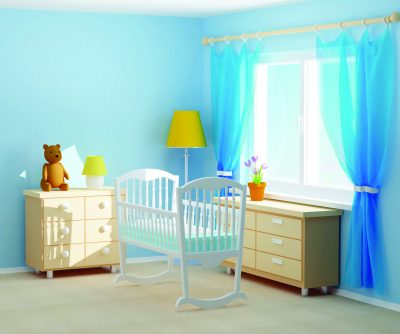Babies and young children are sensitive to airborne irritants and this can lead to a stuffy or blocked nose. It may occur in one or both nostrils, partially or completely blocked. This can be distressing for the child and parents tending to him!
While older children and adults are able to breathe through their mouth if they have a blocked nose, babies can’t as they haven’t yet learnt how to do so. A blocked nose can turn breathing into a struggle. Worse still, a stuffed up nose that occurs frequently increases infection risk which can lead to complications such as sinusitis or otitis media.
Regular breathing
There are reasons why we breathe through the nose, which is the correct way, and not our mouth. Our nostrils function as the ‘first stage’ and are lined with thin hairs, trapping dirt and other particles. During this stage, the air is also humidified, and warmed or cooled accordingly before it enters our lungs.
This ‘filtration’ process continues in the windpipe, which is covered in mucous that trap unwanted particles before they enter into our lungs. When one breathes through the mouth, this important first stage is skipped altogether.
What causes a stuffy nose?
Environmental factors such as dry air, especially in an air-conditioned room, and irritants in the form of ultrafine particles from aromatherapy essential oils or incense, are usually the culprit. Indoor allergens are also another factor e.g. cockroach/dust mite droppings, pet fur and dander, and mould.
As your baby/toddler spends almost all of his time indoors, repeated exposure to these irritants or indoor allergens can cause secretions to build up in the nose, and cause a stuffy nose when he lies down. This is a common reason for your baby to suddenly wake up from his sleep in the middle of night, forcing parents to cradle him in an upright position to get him to sleep again!
These same factors can cause older children to get upper airway respiratory tract infections (e.g. cough, common cold, etc) or have allergic rhinitis which causes nasal secretions and a stuffy nose.
Another potential reason is the structural abnormalities of the face such as an enlarged adenoid blocking the nasal cavity, a deviated nasal septum, or narrowing of the nasal cavity. Because of the abnormality, nasal secretions accumulate easily and can lead to a stuffy nose. In such cases, breathing difficulties can happen throughout the day.
Assistance required!
Since babies and young children normally do not know how to blow their nose to clear blockage, parents will have to help them. It’s certainly a relief to be able to breathe normally, and more importantly during feeding (with a blocked nose, it’s hard for babies to breathe and be fed at the same time!) or bedtime.
As long as your baby is well and has no fever or any other indication of respiratory tract infection, there is no need to panic. Instead, stay calm and focus on clearing his blocked nose. Avoid the use of medication (unless prescribed by your child’s paediatrician) and vapour rubs (e.g. menthol-, eucalyptus-, or camphor-based rubs). Vapour rubs are not recommended for children under 2 years as they may cause irritation and mucuous build-up instead. All you need is nasal spray and a nasal aspirator.
Your baby may struggle if he is not used to the sensation in his nose, so mum and dad should work together.
Importance of nasal hygiene
There are many factors contributing to good nasal hygiene. A clean environment is key for reducing (and preventing) the incidence of a stuffy nose. Try to keep the baby’s room and common space in the house free from dust and indoor allergens. The use of air conditioning should be regulated at a moderate temperature (recommended at 26°C) and the air is not directly blowing onto the child’s face.
If you use a humidifier in your room, clean it regularly. Avoid using any kind of aroma-related materials, including natural scents, as these may irritate your baby’s sensitive nose and airways. If anyone smokes cigarettes or uses vape at home, do seriously consider quitting for the child’s sake.
If your child suffers from a blocked nose often, take the necessary steps to clear it quickly. This will minimise any discomfort or distress your child may experience as it affect his well-being and your own (especially having to stay up through the night!). Parents should also ensure they follow good nasal hygiene practises as well.
An educational contribution by Malaysian Paediatric Association.








Comments